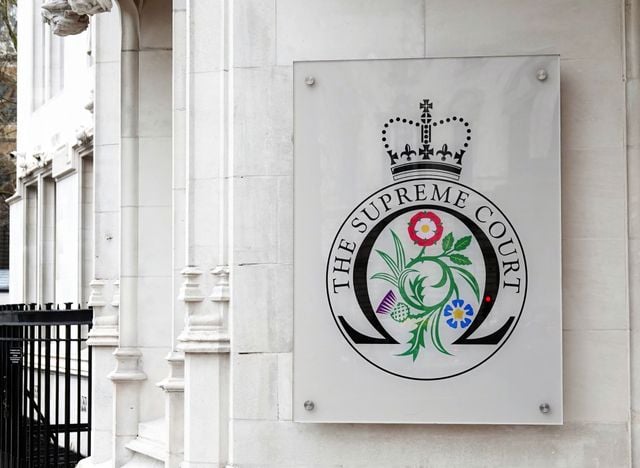On March 21, 2019, the IRS announced it is temporarily suspending two revenue rulings addressing tax-free spinoffs. The suspended rulings had arguably required the distributing corporation and the spun-off corporation to each independently generate current revenue. This development is welcome news for life sciences, technology, and other R&D-focused business organizations that did not pursue a tax-free spinoff because of a perceived revenue requirement. The move comes on the heels of the IRS’s September 2018 announcement that it is prepared to issue favorable rulings on the tax-free treatment of corporate spinoffs by research-intensive business ventures that do not currently collect income, while the IRS studies the issue.
Specifically, the IRS, in Revenue Ruling 2019-09, has suspended the two prior rulings, each issued in 1957, during the pendency of the IRS study, because the rulings “could be interpreted as requiring income generation for a business to qualify” as an active trade or business. The suspension is a concrete step by the IRS with immediate impact, upon which taxpayers and their advisors may rely in evaluating whether the spinoff of an historic R&D-based business will qualify for tax-free treatment, or in seeking a private letter ruling from the IRS. For now at least, the suspension resolves the tension between the suspended rulings and the regulations that adopt a somewhat more liberal approach. While the suspension is not necessarily permanent, the move provides further evidence that the IRS is prepared to take a more modern approach to the qualification of businesses without revenue as “active trades or businesses.”
For a corporate separation to qualify as a tax-free spinoff, both the distributing parent corporation and the spun-off controlled corporation must, among other things, be engaged, immediately after the distribution, in “active trades or businesses” conducted for a minimum of five years. The suspended rulings involved spinoffs of (or by) a business that generated little or no income, a key factor in the conclusion that the active trade or business requirement was not satisfied in the rulings.
One of the suspended rulings involved a petroleum refining, marketing and transport company that began a separate operation to explore for and produce oil in a different geographic area. The exploration and production operation incurred substantial expenditures but “did not include any income producing activity or any source of income” until less than five years preceding its separation from the primary refining, transportation, and marketing operation. The IRS had stated that an active trade or business “does not include a group of activities which, while part of a business operated for profit, are not themselves independently producing income even though such activities would produce income with the addition of other activities, or with large increases in activities previously incidental or insubstantial.” The IRS had also observed that if the exploration venture had been discontinued at any time prior to discovery of oil, the corporation would never have been engaged in producing oil. Accordingly, the IRS had ruled that the exploration and production activities did not constitute an active trade or business because before the discovery of oil in commercial quantities, the venture “did not include any income producing activity or any source of income.”
The other suspended ruling considered a corporation’s separation of a manufacturing business from a group of real estate assets, which included a storage facility used by the manufacturing business, an apartment building rented mainly to employees, a small office building rented to a single tenant, and two houses, one of which was rented to a tenant and one of which was occupied by a relative of the corporation’s president. The IRS ruled that the company’s real estate activities did not qualify as an active trade or business, because only a subset of the properties were rented, and those properties “produced only a nominal rental” and “negligible” net income. Further, the properties “were acquired either as an investment or as a convenience to employees of the manufacturing business.”
Prior to their suspension, both of the above rulings could have been interpreted as significant obstacles to tax-free spinoffs by life sciences, technology, or other businesses that are research-intensive and are not yet collecting income. In some cases, though, those rulings may already have been distinguishable from such spinoffs based on factual differences. Unlike the ruling where the oil exploration activity was an organizationally separate vertical expansion of the refining company’s activity, many technology or life sciences spinoffs may involve a separation of similar product lines at various stages of development that may have previously been organizationally integrated. In addition, in contrast to the real estate in the second ruling, a pre-commercial-stage technology or life sciences venture, for example, would not ordinarily have been created or acquired as a convenience to the employees of a business, or as a passive investment that the company had no apparent intent to develop, with its own employees, into an income-producing line of business.
However, the reasoning of both rulings, especially the first, went beyond the facts described, and was arguably inconsistent with the underlying tax regulations and subsequent IRS guidance. The regulations provide that an active trade or business “ordinarily must include the collection of income and the payment of expenses,” which suggests that at least some businesses that are not yet collecting income can qualify as an active trade or business. But neither ruling addressed that possibility. Further, the second ruling dropped the key word “ordinarily” and instead stated, “The regulations further indicate that a group of activities, which are not themselves producing income, will not qualify as an ‘active business.’” A separate IRS ruling from 1982, which has not been suspended, states, “The use of the word ‘ordinarily’ in . . . the regulations indicates that there are exceptional situations where, based upon all the facts and circumstances, there is no concurrent receipt of income and payment of expenses which, nevertheless, will constitute an active trade or business.” The 1982 ruling, however, did not cite or distinguish either of the 1957 rulings. The suspension of the two 1957 rulings is thus a significant and positive development that provides much-needed clarity as to the IRS’s position during the pendency of the IRS study.
* * *
Ropes & Gray’s prior coverage of the IRS’s September 2018 announcement is available by clicking this link. For further information about the impact of the IRS announcement on your particular situation, please contact your regular Ropes & Gray contact.
Stay Up To Date with Ropes & Gray
Ropes & Gray attorneys provide timely analysis on legal developments, court decisions and changes in legislation and regulations.
Stay in the loop with all things Ropes & Gray, and find out more about our people, culture, initiatives and everything that’s happening.
We regularly notify our clients and contacts of significant legal developments, news, webinars and teleconferences that affect their industries.



